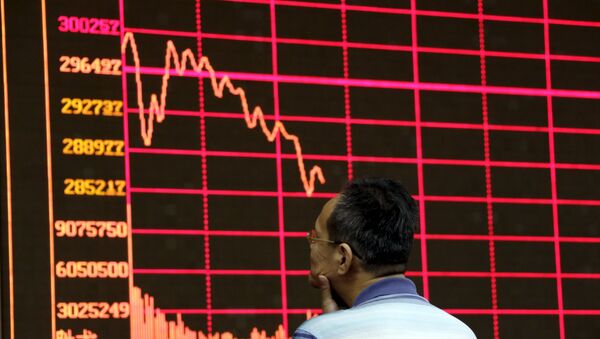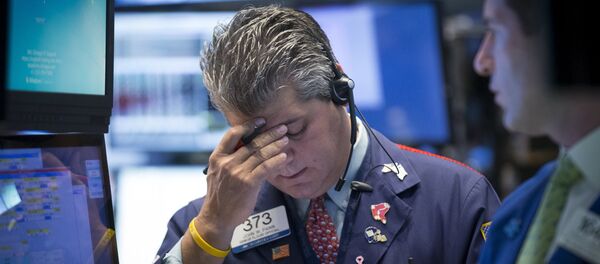While Shanghai's stock market slides, China’s monetary authorities and political leadership are focusing their effort on attempts to solve minor tasks, while completely ignoring the greater picture. The latter is not as disastrous as Beijing’s recent erratic policy moves and witch-hunt might suggest.
After the nation’s main stock measure, the Shanghai Composite, dropped 42 percent from its June peak, effectively erasing $5 trln in value, Beijing saw no better remedy than to inject 150 bln yuan of money liquidity into its financial system to aid struggling banks, also initiating several probes into the recent activities of select market participants. Those include the nation’s largest brokerage companies: Citic Securities, Haitong Securities Co., GF Securities Co., Huatai Securities Co. and Founder Securities Co., along with several officials at China's Securities Regulatory Commission.
Although there is little doubt that China’s financial markets were subject to large-scale speculative activity, including the rigging of fundamentals and use of insider information, there is little doubt that investigations into the market participant will only spur a greater capital flight. Meanwhile, the People’s Bank of China (PBOC) is attempting to introduce limited stimulus via a series of currency devaluations and money injections, which provide only negligible support.
Asian shares continue to tumble amid the turmoil. China’s CSI 300 Index of the largest companies listed in Shenzhen and Shanghai dropped 0.57% on Tuesday, while Shanghai Composite lost 1.27%. MSCI’s APEX less Japan index was flat, while in Japan, the Nikkei Index rose 3.20% on the weaker yen benefitting exporters and capital flight from China.
Despite the seemingly apocalyptic market situation, there are several positive developments in the mainland’s economy. Those are for some reason ignored by Beijing, as full-scale economic, and, perhaps, political reforms are required to let the emerging trends redefine China as a sustainable growing market economy.
Second, China’s economic expansion dropped to its current 7%, which is below the demographically-dictated minimum of 8%. Beijing has done little to address this challenge, even though the nation’s overall well-being rose due to the overseas consumption, which is now shrinking and weighing on China’s economic performance.
Third, factory gate prices have been steadily decreasing, as has overall inflation. Although China’s industrial returns were higher and higher, the nation’s laborers have hardly benefitted: wages have been consciously kept low by Beijing in order for Chinese exports to maintain global competitiveness. The PBOC’s monetary policy has been inadequate, with M2 money supply growing 13.5% from 2011 to 2014 and shrinking 11.8% in 2015 thus far, while governmental debts have skyrocketed.
All in all, the authorities in Beijing deserve the lion's share of the responsibility for the current economic meltdown in China. While the government is still attempting to fix its old growth model, which broke and can’t be repaired due to a combination of factors which are out of Beijing’s reach, the nation’s extensive productive forces are being artificially held back by mismanagement and corruption. The only solution to China's puzzle is a streamlined rebalancing of the entire economy, which could then be driven by domestic demand for manufactured goods. Until then, oil and raw material prices will drop to their early 1990s level, and remain there amid mediocre, resulting in years, if not decades, of economic desperation for commodity-driven emerging markets.






